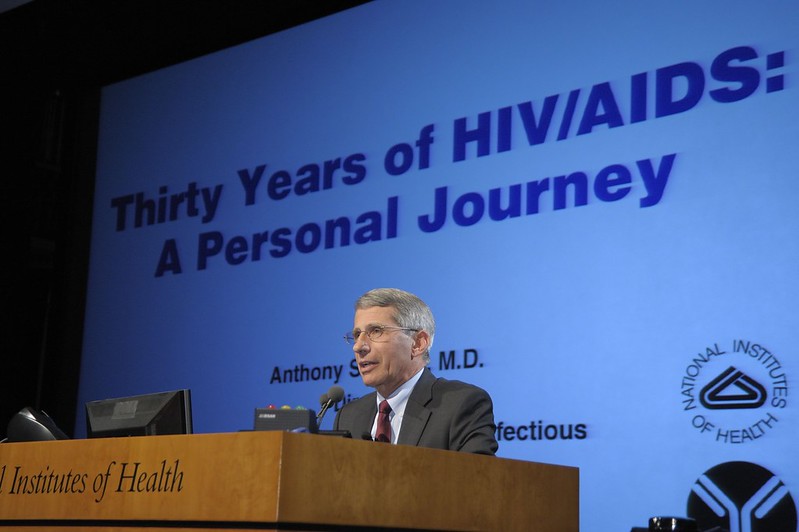News
Fauci lauds Pinoy scientists’ contribution in HIV, TB research

MANILA – United States (US) National Institute of Allergy and Infectious Diseases (NIAID) director Anthony Fauci on Tuesday acknowledged the value of research and cooperation between the Philippines and the US, as he lauded the Filipino scientists’ efforts in the global fight against human immunodeficiency virus (HIV) and tuberculosis (TB).
“Talented Filipino scientists participated in multiple AIDS (acquired immunodeficiency syndrome) clinical research networks that have advanced the global understanding of HIV prevention, treatment, and care,” Fauci said during the National Academy of Science and Technology’s (NAST) annual scientific meeting.
“Filipino scientists have helped lead the way in the studies of TB, particularly multi-drug resistance TB. The work in the Regional Prospective Observational Research on Tuberculosis has been especially important and promising,” he added.
Fauci said with the continuing support from the Department of Science and Technology (DOST), the Philippines “is sure to make significant contributions in the fight against TB”.
The infectious disease expert said his hopes Philippine institutions will continue to receive government support to remain competitive.
“Given its track record, I can foresee great value in the Philippines expanding its scientific role in the Asia Pacific Region,” he said.
Philippine institutions, he said, have a key role in infectious diseases research on malaria and dengue.
“Among the important lessons we have learned from the Covid-19 (coronavirus disease 2019) pandemic is that sustained biomedical research is essential to global well-being, as manifested by the successful development of effective vaccines against SARS-CoV-2,” he said.
Biomedical research is fundamentally important to pandemic preparedness and effective outbreak response, Fauci added.
Meanwhile, DOST Secretary Fortunato de la Peña emphasized the scientists’ role in mitigating the impacts of Covid-19.
“Today’s emergency health crisis put to the fore the capabilities and ingenuity of Filipino scientists and researchers to come up with immediate and innovative responses to Covid 19 and mitigate its impacts,” de la Peña said.
He said local researchers have developed an RT-PCR (reverse transcription-polymerase chain reaction) test kit, ventilators, personal protective equipment, and a travel management system.
“All of these have been made possible by the continuous increase in funding, upskilling of S&T (science and technology) human resources, and creativity from our very own researchers, scientists, and engineers, and strengthened collaboration with global and regional partners,” he said.





















